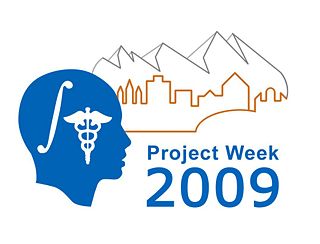Difference between revisions of "2009 Winter Project Week Rotation Tangents"
(New page: {| |thumb|320px|Return to [[2009_Winter_Project_Week|Project Week Main Page ]] |} __NOTOC__ ===Key Investigators=== * BWH: * BWH: <div style="margin: 20p...) |
|||
| Line 8: | Line 8: | ||
===Key Investigators=== | ===Key Investigators=== | ||
| − | * BWH: | + | * BWH: Peter Savadjiev |
| − | * BWH: | + | * BWH: Carl-Fredrik Westin |
| − | + | ||
<div style="margin: 20px;"> | <div style="margin: 20px;"> | ||
| Line 17: | Line 17: | ||
<h1>Objective</h1> | <h1>Objective</h1> | ||
| − | We are developing methods | + | We are developing methods for the local geometrical characterization of diffusion tensor fields. |
</div> | </div> | ||
<div style="width: 27%; float: left; padding-right: 3%;"> | <div style="width: 27%; float: left; padding-right: 3%;"> | ||
| − | <h1>Approach | + | <h1>Approach</h1> |
| − | Our approach is to | + | Our approach is to combine the notion of rotation tangents published in [1] with ideas from the streamline flow geometric model presented in [2] in order to develop novel scalar measures that will characterize the local geometry of diffusion tensor fields. The computation of the rotation tangents is already implemented in the Teem library. The implementation of our project is to be carried out in Python, using the novel Python wrappings for the Teem library. The visualization of the resulting scalar measures may be done using the capabilities of the Python Image Library (PIL), the plotting functions of Matplotlib or maybe some 3D plotting function provided by the Mlab Python module, which is provided by the Mayavi package. |
| − | |||
| − | |||
| − | |||
</div> | </div> | ||
| Line 33: | Line 30: | ||
<h1>Progress</h1> | <h1>Progress</h1> | ||
| − | + | ||
| + | We are currently working on implementing the above ideas in Python and on developing appropriate visualization methods. | ||
</div> | </div> | ||
| Line 40: | Line 38: | ||
</div> | </div> | ||
| − | ===References=== | + | ===References=== |
| − | * | + | * [1] G. Kindlmann, D. B. Ennis, R. T. Whitaker and C-F Westin. "Diffusion tensor analysis with invariant gradients and rotation tangents. IEEE TMI, Vol. 26, No. 11, pp. 1483-1499, 2007. |
| − | * | + | * [2] P. Savadjiev, S. W. Zucker and K. Siddiqi. On the Differential Geometry of 3D Flow Patterns: Generalized Helicoids and Diffusion MRI Analysis. Proc. ICCV 2007. |
Revision as of 21:55, 9 December 2008
Home < 2009 Winter Project Week Rotation Tangents Return to Project Week Main Page |
Key Investigators
- BWH: Peter Savadjiev
- BWH: Carl-Fredrik Westin
Objective
We are developing methods for the local geometrical characterization of diffusion tensor fields.
Approach
Our approach is to combine the notion of rotation tangents published in [1] with ideas from the streamline flow geometric model presented in [2] in order to develop novel scalar measures that will characterize the local geometry of diffusion tensor fields. The computation of the rotation tangents is already implemented in the Teem library. The implementation of our project is to be carried out in Python, using the novel Python wrappings for the Teem library. The visualization of the resulting scalar measures may be done using the capabilities of the Python Image Library (PIL), the plotting functions of Matplotlib or maybe some 3D plotting function provided by the Mlab Python module, which is provided by the Mayavi package.
Progress
We are currently working on implementing the above ideas in Python and on developing appropriate visualization methods.
References
- [1] G. Kindlmann, D. B. Ennis, R. T. Whitaker and C-F Westin. "Diffusion tensor analysis with invariant gradients and rotation tangents. IEEE TMI, Vol. 26, No. 11, pp. 1483-1499, 2007.
- [2] P. Savadjiev, S. W. Zucker and K. Siddiqi. On the Differential Geometry of 3D Flow Patterns: Generalized Helicoids and Diffusion MRI Analysis. Proc. ICCV 2007.